

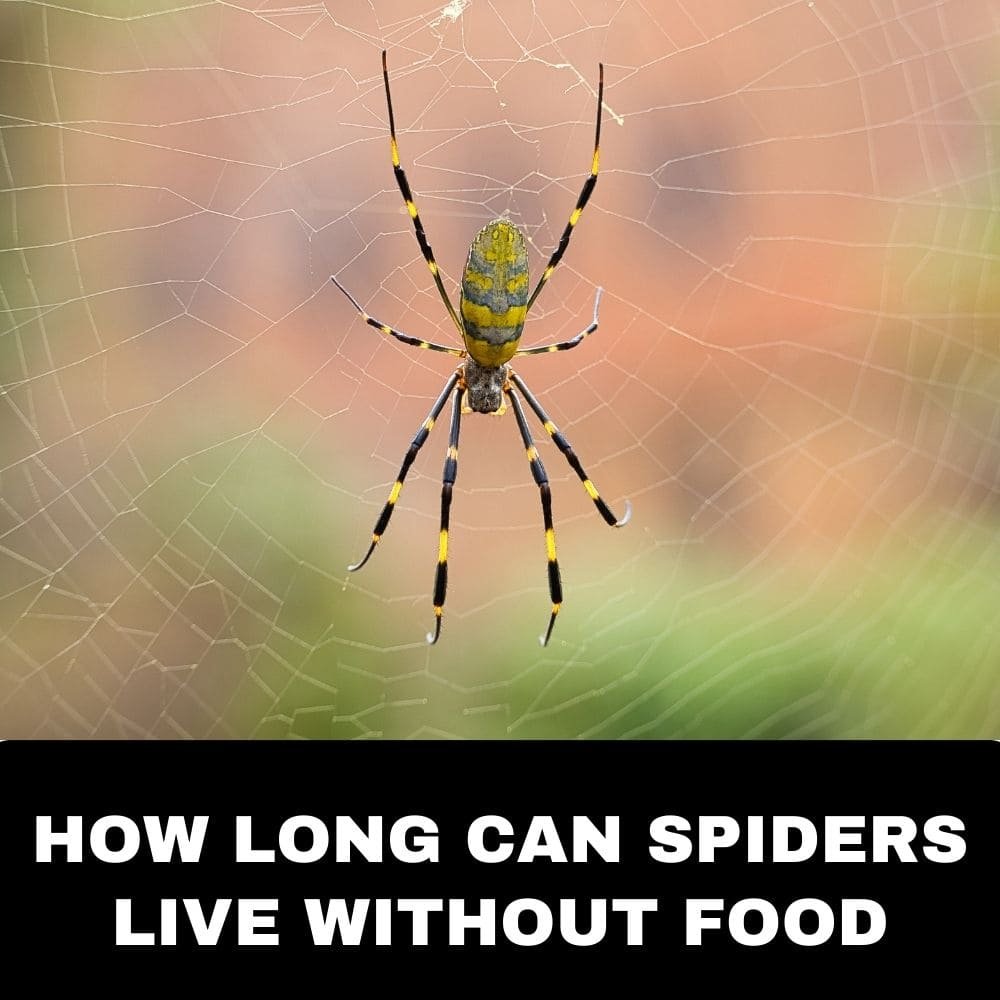
Have you ever noticed a spider lurking in the corner of your home and wondered—how long can that creepy crawly survive without eating any bugs? I definitely have! The question of how long can spiders live without food has puzzled many arachnophobes and pest control experts alike.
As someone who isn’t a big fan of spiders, I used to hope they wouldn’t last long without food. But turns out, our eight-legged friends are incredibly resilient when it comes to surviving without meals thanks to their remarkable adaptations for tolerating food scarcity.
In this post, we’ll explore the shocking truth about how long spiders can live without eating anything. Hint: it’s a lot longer than you’d think!
Not all spiders are created equal when it comes to fasting abilities. The length of time a spider can survive without food depends on a few key factors like:
Research suggests that smaller, slower spiders with low metabolisms tend to do best at living without food. But even large, quick spiders can surprise you with their fasting capabilities thanks to specialized adaptations.
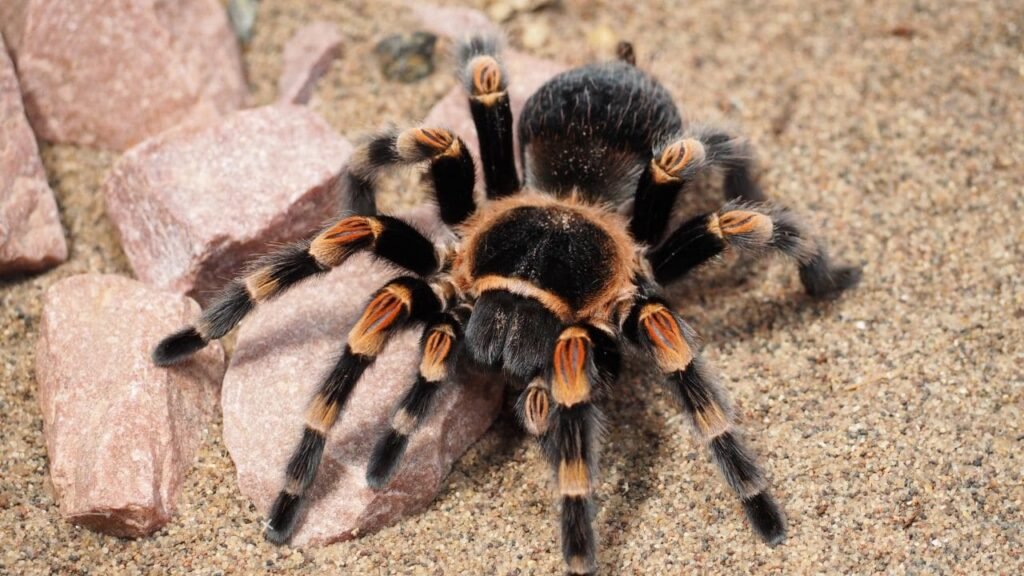
One fascinating spider adaptation that helps them survive periods of famine is called diapause. Diapause is essentially a type of hibernation where spiders become inactive and undergo metabolic changes to suspend their development.
By entering diapause, spiders can dramatically slow their use of energy. This allows them to simply hunker down and wait out conditions where prey is scarce.
Diapause serves as a survival mechanism that enables spiders to live in environments that may experience seasonal shifts in food availability. Pretty mind-blowing right?
As someone guilty of anxiously eyeing spider webs in the house, I was curious how long our common home intruders can persist without food.
Turns out, some of the spiders we encounter most frequently are actually champions when it comes to surviving without meals:
Knowing house spiders can survive for months without eating is admittedly a bit terrifying. But it also makes you appreciate their impressive endurance and adaptations!
In addition to common house spiders, some other spiders stand out for their shockingly long periods of food deprivation:
Clearly, spiders have some remarkable biochemical and physiological adaptations that enable them to survive and wait for conditions to improve during times of food scarcity.
| Spider Species | Average Fasting Duration |
|---|---|
| Camel Spider | 4-6 months |
| Tarantula | Over 2 years |
| American House Spider | 130 days |
| Daddy Longlegs | 200+ days |
| Fishing Spider | Up to 200 days |
| Wolf Spider | Around 180 days |
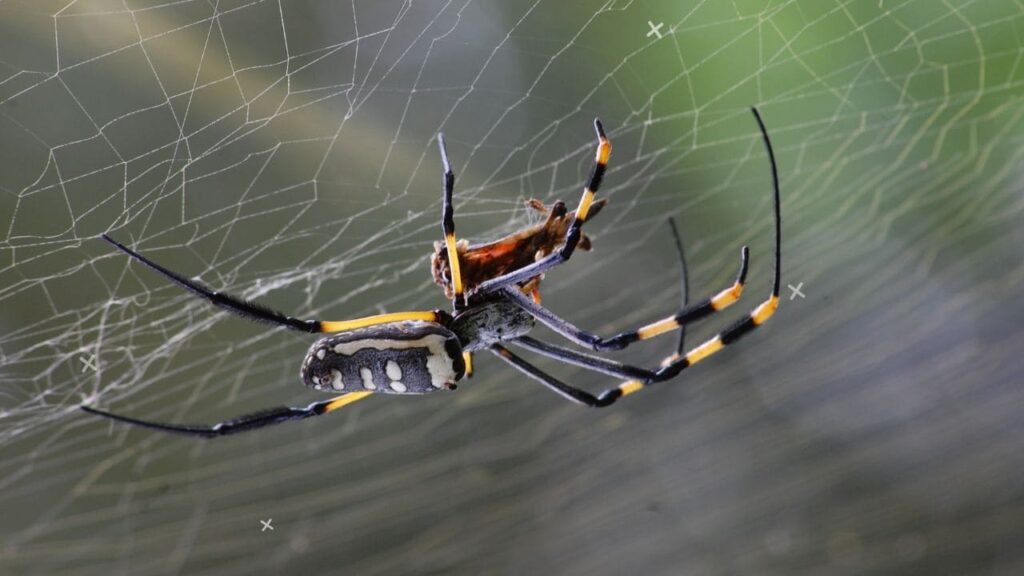
At this point, you might be wondering—how on Earth do spiders manage to survive so long without any food or nutrients entering their bodies?
It comes down to a number of key metabolic, behavioral and structural adaptations:
Essentially, spiders are optimized both structurally and behaviorally to operate on the tiniest trickle of resources. Their bodies can patiently endure what would starve other creatures thanks to specialized adaptations for tolerating food scarcity.
| Stage | Adaptations |
|---|---|
| 1 | Metabolic rate lowers |
| 2 | Web recycling and nutrient reabsorption |
| 3 | Leg muscles atrophy from disuse |
| 4 | Molting and egg production halts |
| 5 | Heart rate and respiration decline |
| 6 | Exoskeleton darkens as outer layers reabsorbed |
While most coverage of spider fasting focuses on lack of food, availability of water resources also plays a key role.
Without water, spiders are unable to generate new silk, mobilize nutrients, or maintain the right moisture balance in their bodies.
While most spiders can survive over a month without drinking water, inadequate water eventually causes problems like:
So while spiders are fasting machines when it comes to food deprivation, a lack of water still impacts their abilities over time. Some access to moisture remains important for spider survival.
In temperate climates, seasonal changes in weather and food availability impact spiders’ eating patterns as well.
So while spiders can survive lean times, seasonal shifts do impact their typical feeding patterns and energy demands throughout the year. Their metabolism aligns with conditions.
| Season | Spider Feeding Patterns |
|---|---|
| Winter | Inactive, rely on reserves |
| Spring | Increased hunting after dormancy |
| Summer | High intake to support reproduction |
| Fall | Reduced feeding to prepare for winter |
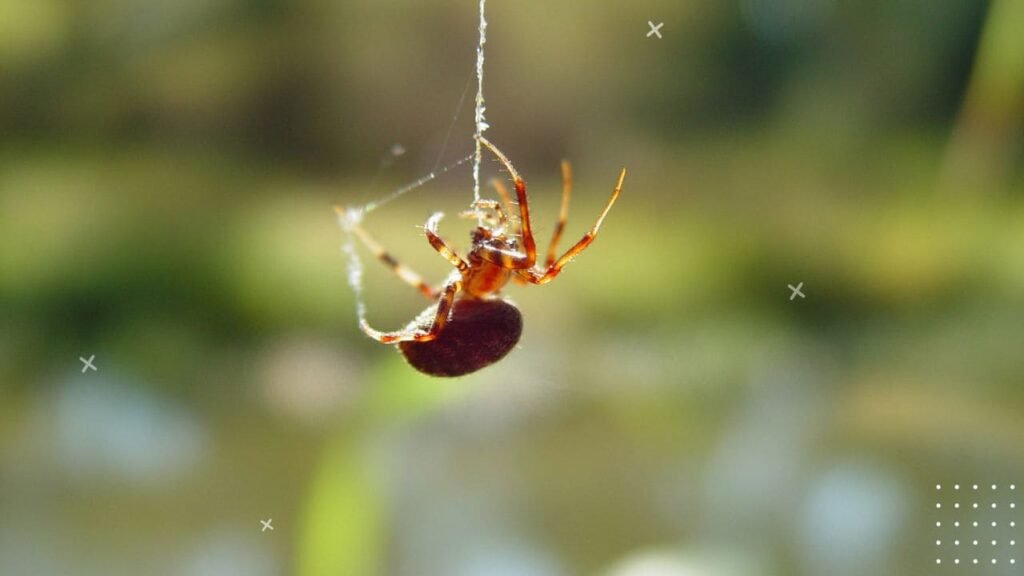
Since spiders expend so much silk and effort on building webs, it’d make sense for them to keep some food up there right?
Well, most spider species actually do NOT cache or store food in their webs or nests. There are a few exceptions though:
So while most spiders fully consume whatever they capture immediately, a few clever species do save leftovers when possible to hedge their bets for survival.
At this point, it probably comes as no surprise that spiders can function just fine on minimal energy intake thanks to their impressively low metabolisms.
But what’s extra fascinating is spiders can actually speed up or slow down their metabolic rates in response to environmental conditions.
When it’s warm, and food is plentiful, spiders capitalize by cranking up their metabolisms to grow and reproduce.
Conversely, as temperatures drop or food becomes scarce, spiders can shift into an ultra low gear. This allows their bodily processes to hum along at barely-perceptible levels until conditions improve.
So not only do spiders have tremendously low energy needs already, they can optimize and alter their metabolism in line with resource availability. Talk about effective energy budgeting!
After diving into the science and research on how long spiders are able to survive without food, a few key points stick out:
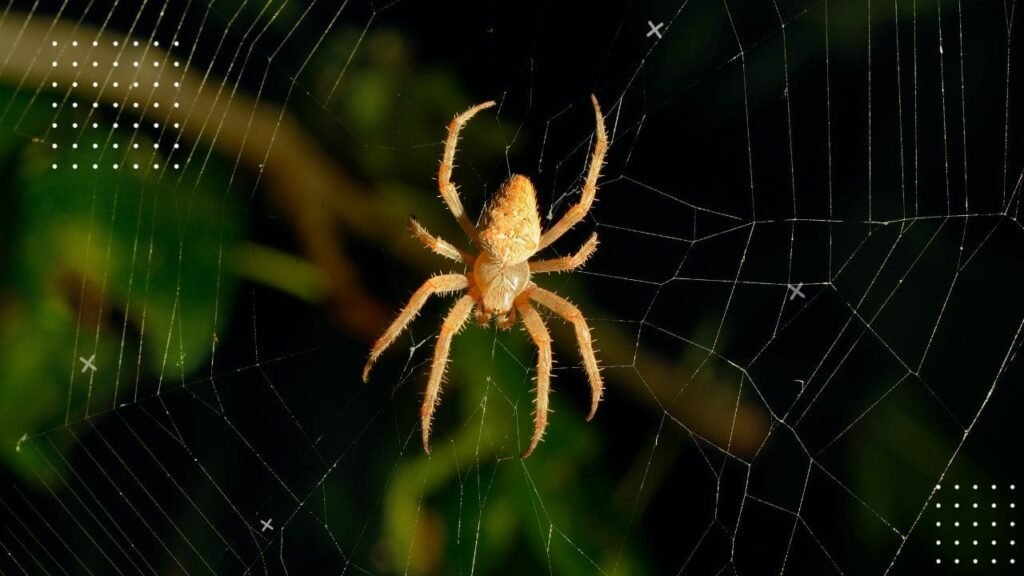
When it comes to living without food, spiders are impressive survivors. Their specialized adaptations allow them to thrive in environments that experience significant seasonal shifts in resources.
So while you may not love having spiders share your living space, at least you can appreciate just how well-equipped they are to handle hunger! Their flexible metabolisms and tenacious frames let them hold on under conditions that would quickly defeat most creatures.
Next time you see a spider waiting patiently in its web, remember it’s likely just fine going days or even months without successfully catching any prey thanks to its adaptations for tolerating food scarcity. While that thought still may make your skin crawl, it’s hard not to admire these masters of energy conservation and fasting!
So tell me – how long did you think spiders could survive without food before reading this? I definitely underestimated them, but now I know better! Let me know if you have any other burning spider questions, and I’ll try to spin some answers with my new arachnid knowledge.
How long can spiders survive without any food?
Many spiders can survive surprisingly long periods, ranging from weeks to even months without eating anything. Exact durations depend on the spider species, age, size, and environmental conditions. Smaller spiders with slower metabolisms often have greater fasting capacity.
What adaptations help spiders survive without food?
Key adaptations include lowering metabolic rate, entering dormant states like diapause, reabsorbing and recycling nutrients from their body and webs, becoming extremely inactive to conserve energy, and optimizing their anatomy for extreme efficiency.
Do all spider species have the same fasting capability?
No, there is significant variation among species. Camel spiders, tarantulas, fishing spiders and some other species are champions when it comes to surviving months of starvation. Other types like jumping spiders have more modest fasting abilities.
Why can’t spiders survive indefinitely without food?
Lack of nutrients for energy and bodily functions eventually takes a toll. Lack of water also impacts spiders over time by hindering processes like silk production. Hibernation states like diapause enable survival for periods, but not forever.
Do spiders store food in their webs?
Most do not, but some exceptions like orb weaver spiders may cache leftovers in webs for later. Storing food when possible helps spiders hedge against starvation.
How does weather impact spider feeding patterns?
Warmer weather with more prey available means more active feeding. Colder months lead to reduced metabolism, inactivity and reliance on reserves. Seasonal shifts alter how much spiders must feed.
What physical changes occur in starving spiders?
Starving spiders lose abdominal mass as fat reserves dwindle. Their leg muscles may atrophy with disuse. Molting ceases. Heart and respiration rates decline. The exoskeleton may darken as outer layers are reabsorbed.